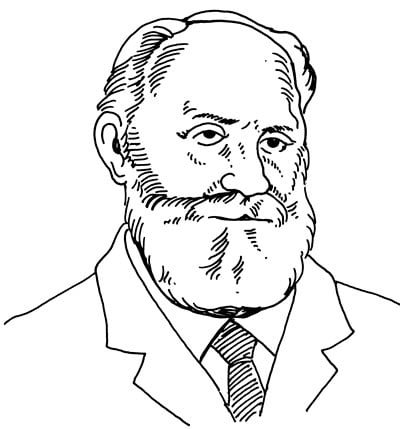
Ivan Petrovich Pavlov (September 14, 1849 – February 27, 1936) was a Russian physiologist, psychologist, and physician. He was awarded the Nobel Prize in Medicine in 1904 for research pertaining to the digestive system. Pavlov was widely-known for first describing the phenomenon now known as conditioning in his experiments with dogs.
Pavlov was investigating the gastric function of dogs by externalizing a salivary gland so he could collect, measure, and analyze the saliva produced in response to food under different conditions. He noticed that the dogs tended to salivate before food was actually delivered to their mouths, and set out to investigate this ‘psychic secretion’, as he called it. He decided that this was more interesting than the chemistry of saliva, and changed the focus of his research, carrying out a long series of experiments in which he manipulated the stimuli occurring before the presentation of food. He thereby established the basic laws for the establishment and extinction of what he called ‘conditional reflexes’ —i.e., reflex responses, like salivation, that only occurred conditional upon specific previous experiences of the animal. These experiments were carried out in the 1890s and 1900s, and were known to western scientists through translations of individual accounts, but first became fully available in English in a book published in 1927.
Perhaps unfortunately, Pavlov’s phrase ‘conditional reflex’ was mistranslated from the Russian as ‘conditioned reflex’, and other scientists reading his work concluded that since such reflexes were conditioned, they must be produced by a process called conditioning. As Pavlov’s work became known in the West, the idea of ‘conditioning’ as an automatic form of learning became a key concept in the developing specialism of comparative psychology, and the general approach to psychology that underlay it, behaviourism.
Unlike many pre-revolutionary scientists, Pavlov was highly regarded by the Soviet government, and was able to continue his researches until he was a considerable age. Pavlov himself was not favorable towards Marxism, but as a Nobel Prize winner he was seen as a valuable political asset, and as such lavishly funded. In later life he was particularly interested in trying to use conditioning to establish an experimental model of the induction of neuroses. His laboratory in St. Petersburg has been carefully preserved.
It is popularly believed that Pavlov always signalled the occurrence of food by ringing a bell. However, his writings record the use of a wide variety of auditory stimuli, including whistles, metronomes, tuning forks, in addition to a range of visual stimuli. When, in the 1990s, it became easier for Western scientists to visit Pavlov’s laboratory, no trace of a bell could be found.
Pavlov was a very dextrous operator who was compulsive about his working hours and habits. He would sit down to lunch at exactly 12 o’clock, he would go to bed at exactly the same time each evening, would always feed his dogs at exactly the same time every night and he would always leave for Estonia on vacation on the same day each year. This behaviour changed when his son Victor died in the White Army — after which he suffered from insomnia.

